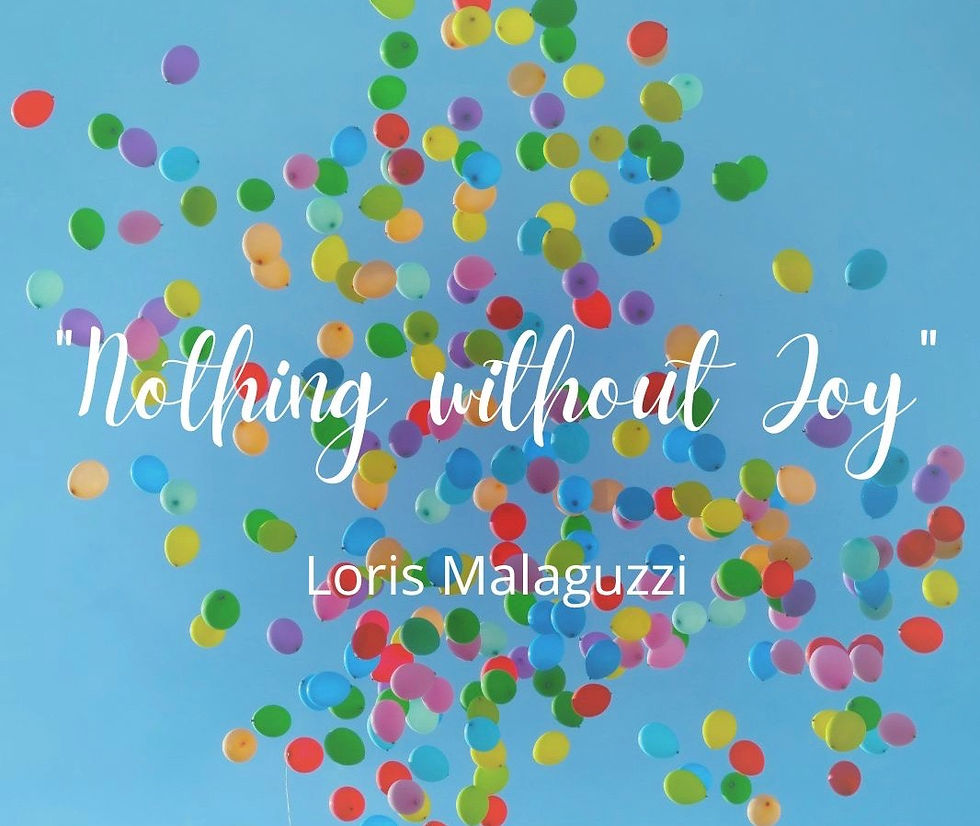Remote Reflections 9: What? So what? Now what?
- marywbell53
- Mar 6, 2022
- 2 min read
Updated: Apr 24, 2022
What? So what? Now what? I consider those questions as I document children’s explorations, and I find them to be equally helpful when reflecting on my own experiences.
Previous posts have discussed the What? and So what? of adapting a social-constructivist philosophy to a remote context. Here I consider the Now what?
What is the most significant insight that has emerged from this experience, and how will it influence my work with children, families, and teachers moving forward?

Being a Beginner Is a Life-long Journey
In the first post of this series, I stated my belief that teaching at its best is always a creative act. And, creativity inherently involves taking risks.
For veteran teachers like myself, those risks usually fall just outside the boundaries of our knowledge and experience. Teaching remotely, however, required me to step far outside my comfort zone, and taking any risk felt like jumping off a cliff with an unreliable parachute.
As a beginner with no proven track record in this way of teaching, the stakes of perceived success or failure seemed so much higher than when I was in the comfortable embrace of a classroom environment. I found myself on a rollercoaster of emotions for the first few months. I was elated for the rest of the day when the children were intrigued with a material I offered or a question I posed. Similarly, looks of boredom or a simple “I don’t want to do that” could deflate my confidence like a balloon that had been poked with a pin.
This experience has given me a renewed appreciation for young children’s willingness to constantly move out of their comfort zone in order to grow and learn.
As I reflected on my feelings of vulnerability this fall, I thought about the courage it takes for young children to risk trying something new and challenging – whether it is writing letters in their name, asking a friend to play, putting on their winter gear, or a myriad other things – and how impactful my words and actions are in those moments.
I want to remember how easily I became discouraged during those initial weeks of remote teaching when I respond to a child whose drawing doesn’t look as they had hoped, whose carefully constructed tower repeatedly falls down, or whose friend wants to play with someone else.
I also want to remember how elated I felt when a parent expressed appreciation for my efforts, and make it a priority to acknowledge a child’s resilience and sense of accomplishment when they create a second drawing and smile at the results, revise their skyscraper construction theories, or ask a new friend to play.
To do that, I must become a beginner on a regular basis - something Tom Vanderbilt discusses in this article from his book Beginners: The Curious Power of Life-Long Learning.
Taking risks must be a lived experience, not just a pedagogical construct.. This year, that meant taking on a new professional role. In the future, it may mean learning how to play chess (as Tome Vanderbilt did), taking a theater class, or doing a podcast. Who knows? What I do know is that however I choose to risk becoming a beginner, it will make will make me a more curious, knowledgeable, and empathetic human being – and a better teacher.



Comments